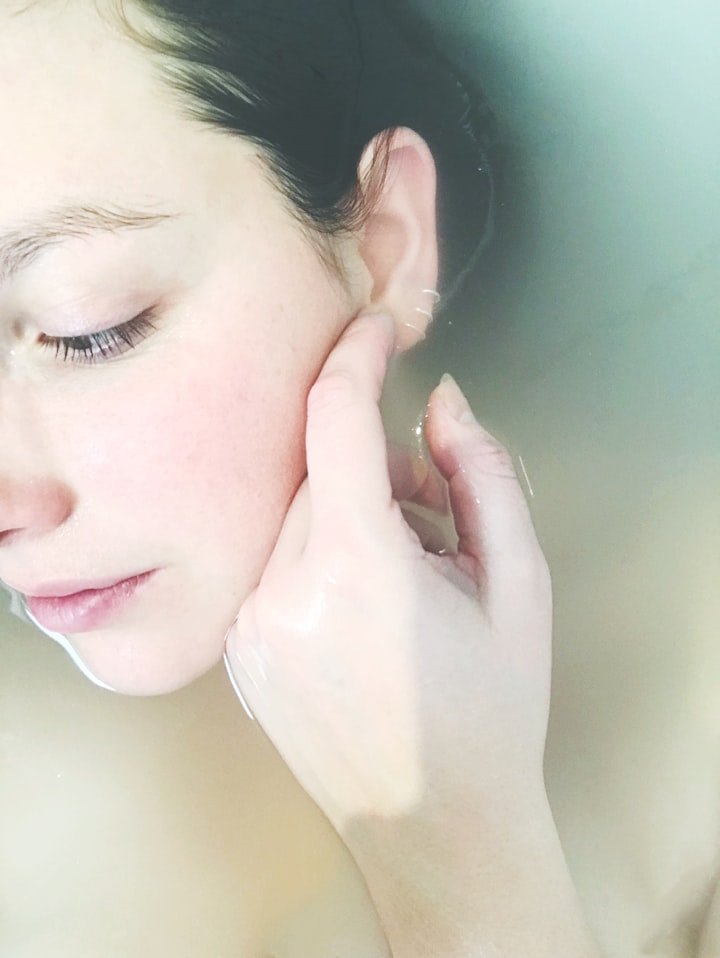Ultimate Guide to Skin Care:
Expert Tips and Tricks for Every Skin Type
When it comes to skin care goals, the word "glowing" seems to universally rank top of mind. So in the pursuit of a healthy, radiant complexion, we scoured the research, tapped experts, and looked to time-tested rituals to find the best-of-the-best advice: This list only includes things that work with a Capital-W.
Here, 24 proven—and natural—ways to maintain glowing skin:
1. Use a safe, mineral-based sunscreen daily.
A clean, mineral-based SPF should be applied daily, all year round. "Ultraviolet radiation is unequivocally carcinogenic," explains board-certified dermatologist Heidi Waldorf, M.D. "If you don't care about that, think vanity—UV rays are the primary cause of the texture and color changes of skin aging." To protect your skin, Waldorf recommends using a mineral-based sunscreen (look for active ingredients like zinc oxide or titanium dioxide) that is SPF 30 or higher and applying it as the final step in your skin care routine every morning. Because mineral sunscreen is a physical barrier, it should be applied as the last step before makeup: Any skin care actives you try to apply after won't penetrate.
Additionally—smart sun care goes well beyond SPF. Always be mindful of how much time you spend in the sun (read: don't sunbathe for sport) as well as wear hats and other protective clothing.
2. Try supplementing collagen.*
The most abundant protein in your body—and your skin—is collagen. And, unfortunately, our natural reserves of this essential protein deplete as we age. Collagen supplements contain amino acids, which has been shown to promote our hair, skin, and nail health.* By ingesting the hydrolyzed collagen peptides, the supplement is absorbed by the body and then can support natural collagen levels by stimulating our cell's fibroblasts (or what makes collagen and elastin in the first place), thereby promoting a healthy, glowing, firm complexion.* This is backed by cold hard data too: The research shows that these collagen peptides are able to support skin elasticity, hydration, and dermal collagen density.* If you want our favorite recommendations, check out our list for the best collagen supplements.
3. Exfoliate.
"I am not recommending a harsh scrub or cloth," explains board-certified dermatologist Nancy Samolitis, M.D., who lists exfoliation as one of her top tips for glowing skin. "Light exfoliation, with either a nonirritating acid cleanser or toner that dissolves dead skin cells on the surface, [will] lead to glowing skin." How so? Removing the outer layer of excess dead skin cells will help smooth skin texture, increase the absorption rate of your skin care products, and brighten up your complexion.
4. Take care of your gut.
Research shows that underlying gut health issues can manifest on the skin in many ways, from blemishes to flushing. The connection even has a name: the gut-skin axis. Overall gut health is nuanced and complex, and it's important (for so, so many reasons) for everyone to take the time to learn how to care for and nourish your own unique gut flora. However, for the purpose of this article, here's a general guideline: Anything that's not healthy for your gut (i.e.: sugar, processed food) can lead to gut microbial imbalance and trigger oxidative stress and inflammatory processes, not just in the gut, but throughout the body. Over time, left unchecked, these imbalances can also manifest as skin issues. Also, see: Here's why you should heal your gut if you want clear skin.
5. Incorporate healthy fats into your diet.
"Healthy fats like those found in nuts, flaxseed, and avocados can help to replenish your body's ability to make healthy and strong cell membranes, [which] can protect against environmental damage by restoring the skin barrier," Samolitis explains. Waldorf agrees, explaining that "not eating adequate healthy fats can cause the skin and hair to be dry, and increasing these fats in the diet may help in certain skin conditions characterized by excessive dryness." Other healthy-fat foods to know for glowing skin include salmon, chia seeds, olive oil, and whole eggs.
6. Keep your skin microbiome balanced.
Just like the gut, a healthy, balanced skin microbiome is essential to maintaining healthy, balanced skin. These microscopic bacteria keep skin hydrated and supple, fight off free radicals, stave off outside offenders, and even protect against harmful UV rays. Keep yours in check by avoiding harsh soaps and scrubs, which can strip away the essential oils and bacteria that make up the skin microbiome. On the flip side, use skin care products that are formulated specifically to boost the skin microbiome, such as those that contain pre-, pro- and postbiotics (here's our list of the best products to support a healthy skin microbiome).
7. Apply skin care products right after bathing.
Perhaps one of the most essential components of healthy skin is moisture. In addition to a quality skin care routine, the timing in which you apply your products can affect moisture retention. Waldorf's top tip: Take to your skin care routine immediately after hopping out of the shower. "Applying a moisturizer daily on face and body after washing replenishes and seals in moisture," she says. "It is much better to maintain good skin than to try to catch up after skin is dry, inflamed, and uncomfortable."
8. Practice a facial massage routine.
Not only does it feel enjoyable, but facial massage can lessen tension and increase circulation, thereby helping to keep skin cells healthy and aiding in lymphatic drainage. Commit to a daily facial gua sha routine or use a jade roller. It only takes a few minutes a day, and the post-facial massage glow (courtesy of aforementioned increased circulation) will be so worth it.
9. Eat antioxidant-rich foods.
"The more colorful, the better," Samolitis says. "My favorites are dark, leafy greens and berries." Indeed, fruits and vegetables are considered the best sources of antioxidants. Some antioxidant-packed foods to incorporate into your diet include blueberries, kale, spinach, and—bonus—dark chocolate.
10. Stay active.
Exercise increases blood flow throughout the body, thereby bringing vital oxygen, nutrients, and minerals to the skin. Bottom line: Working out leads to brighter, better-looking skin.







Comments
There are no comments for this story
Be the first to respond and start the conversation.